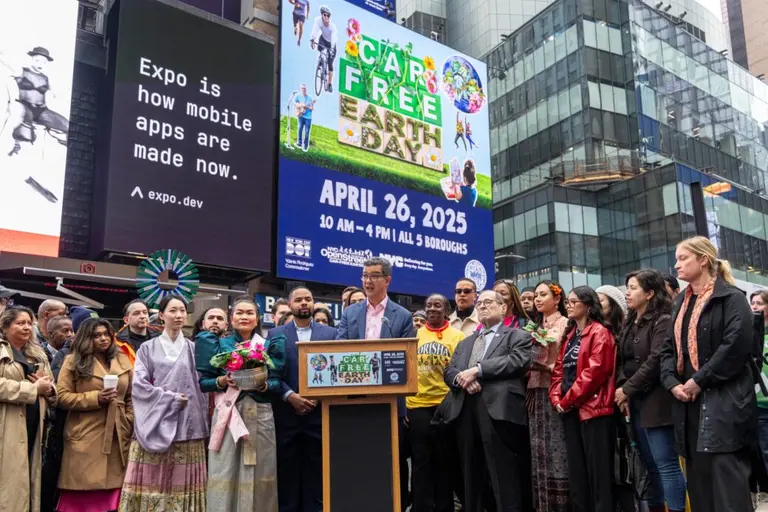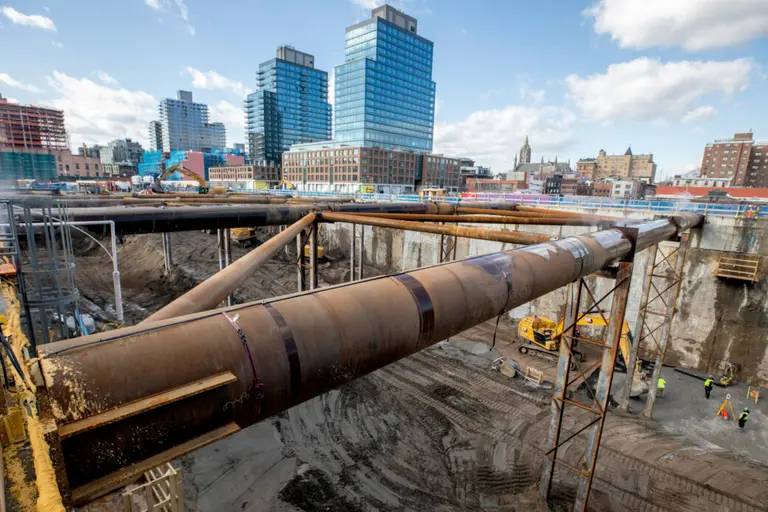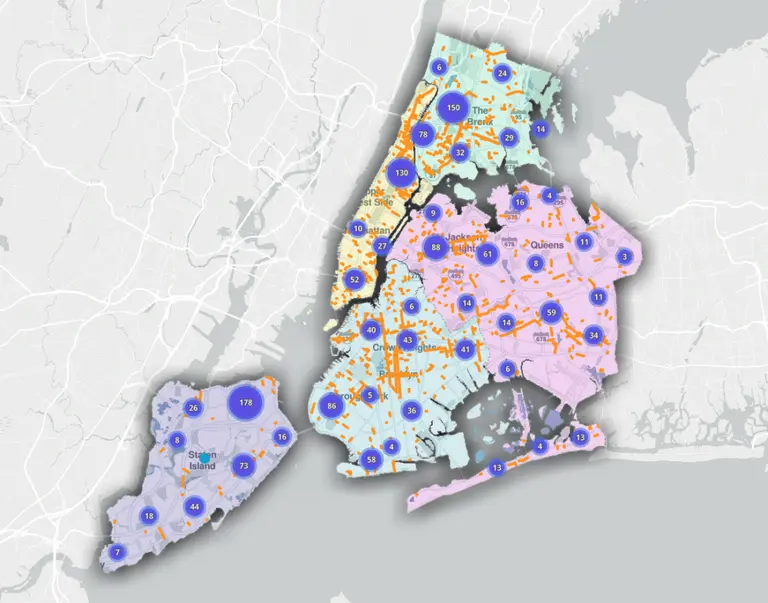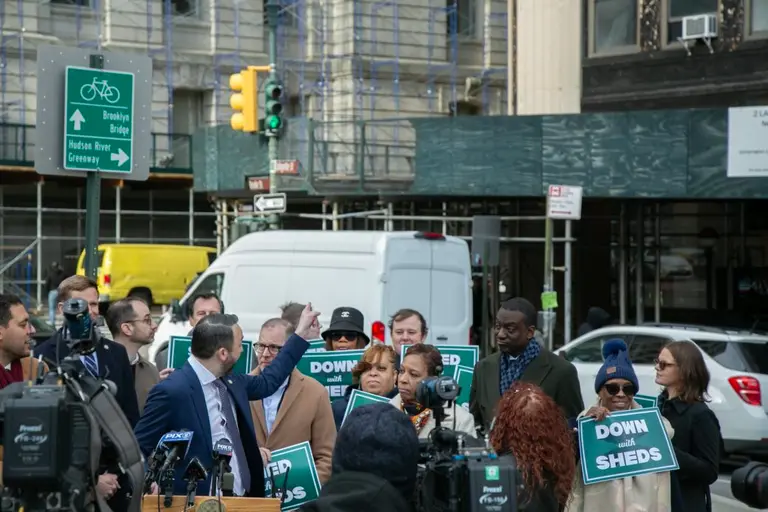Adams ends NYC’s 90-day shelter rule for homeless New Yorkers
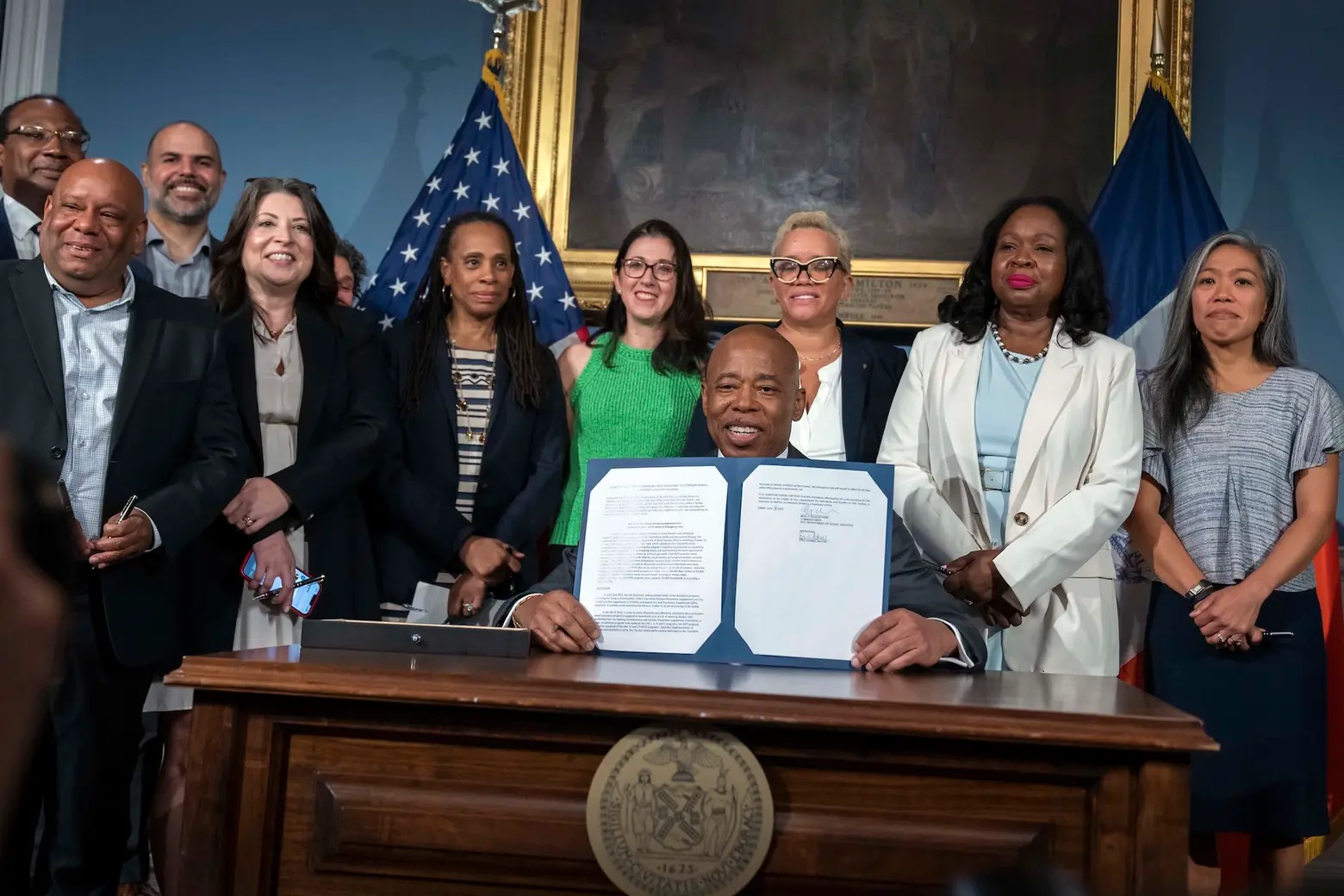
Mayor Eric Adams issued emergency rules eliminating the 90-day length-of-stay requirement for New Yorkers in shelters to be eligible for housing vouchers. Photo by Ed Reed/Mayoral Photography Office on Flickr
Mayor Eric Adams on Friday ended a rule that had required unhoused people to spend at least 90 days in shelter before qualifying for rental assistance vouchers. The emergency rule change expands eligibility for the vouchers, called CityFHEPS, which will in turn house more New Yorkers and free up space in the shelter system for asylum seekers. The move by the mayor comes a few weeks after the City Council passed a comprehensive set of bills expanding rental assistance, including the end of the 90-day rule. Adams criticized the rest of the package, citing budget costs, but did not say if he plans to veto the legislation.
The end of the rule will make space in the shelter system, which has already been pushed past its limits by the ongoing migrant crisis. So far, the city has cared for more than 73,000 asylum seekers and is actively caring for upwards of 44,000, according to the Adams administration.
“Today, we’re taking our efforts to house more New Yorkers to the next level – building on our work expanding voucher eligibility, cutting red tape, and reducing bureaucracy that we’ve focused on since day one,” Adams said during a press conference on Friday. The mayor also called on Albany to act on housing measures.
“By removing the 90-day length of stay requirement for our CityFHEPS rental assistance program for individuals and families in shelter, we’ll help more people exit shelter for permanent housing faster. To really build the housing New Yorkers need, the state Legislature must pass a 421-a replacement, allow more office conversions, and lift the cap on housing in Midtown Manhattan.”
At the end of May, the City Council passed a set of bills designed to house more New Yorkers and free up space in the city’s shelter system. In addition to a bill that included an end to the 90-day rule, the legislation expanded eligibility for the city’s rental assistance program, allowed tenants to prove a risk of eviction by presenting a rent demand letter, and changed the eligibility of a housing voucher from 200 percent of the federal poverty level to 50 percent of the area median income.
At the time of the legislation’s passing, Adams expressed the possibility that he might veto it, claiming that the legislative package would cost the city an extra $17 billion over five years. However, due to each bill receiving at least 30 co-sponsors in the Council, the legislation passed with a veto-proof majority, according to Gothamist.
According to an analysis by Win, the largest provider of shelter and supportive services for homeless families in NYC and the country, the elimination of the 90-day rule would save the city as much as $27,990 per homeless family. The report also found that housing a family in a homeless shelter for a single year costs the city more than housing a family in a two-bedroom apartment with a CityFHEPS voucher for five years.
Christine C. Quinn, President & CEO of Win, released the following statement in response to the mayor’s repealing of the 90-day shelter wait rule:
“From the very beginning, the 90-Day Rule has been an illogical and cruel policy. This rule was intended to punish homeless New Yorkers and its only impact was keeping them in shelter for months longer than they needed to be — costing the City millions of dollars in the process.”
Quinn continued: “But as the city continues to face its worst homeless crisis since the Great Depression, more must be done. Last month, I was proud to work with the City Council on a historic package of bills that would make CityFHEPS housing vouchers more accessible and even more powerful. If we truly want to break the cycle of homelessness in New York, Mayor Adams must immediately sign these bills into law. Homeless families deserve nothing less.”
During Friday’s press conference where he announced his decision to enact executive authority and end the 90-day rule, Adams once again touched on the financial implications of passing such the entire package of legislation. It was unclear if the mayor would veto the rest of the legislation.
RELATED:
